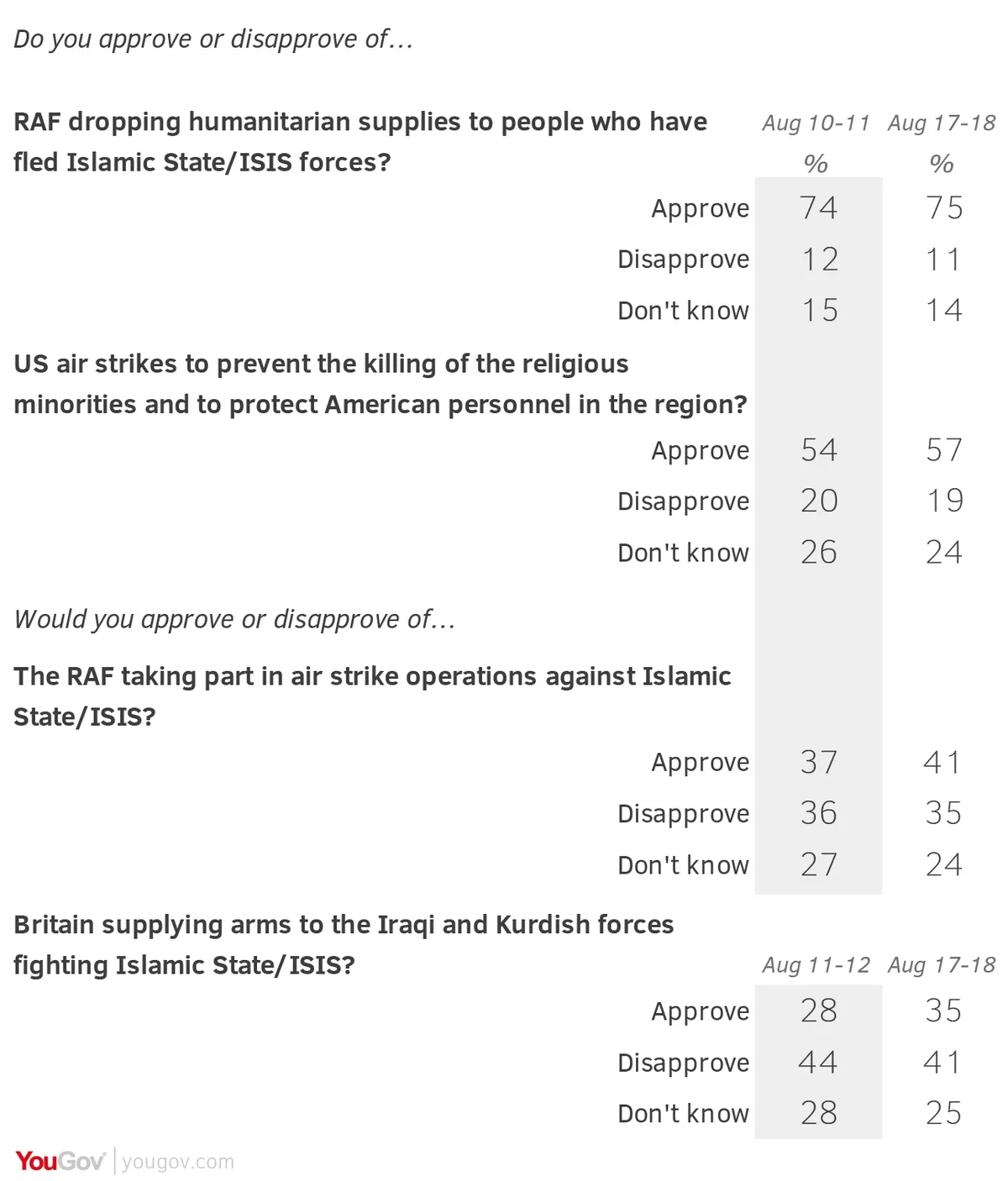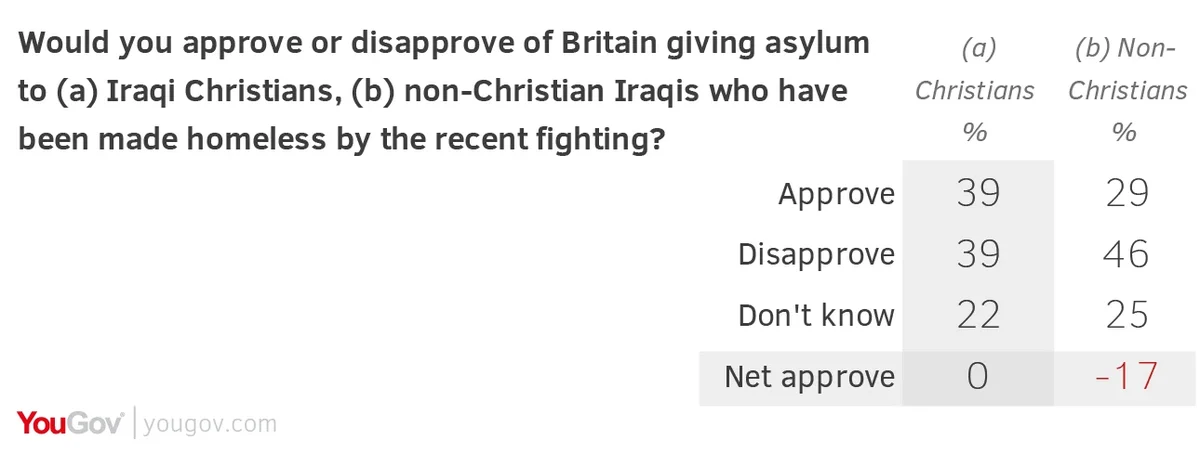Britain’s voters are more willing to support military action in Iraq than they were a year ago in Syria.
Last August, after Syrian forces had used chemical weapons against the regime’s opponents, a YouGov survey for The Sun found that British voters divided two-to-one against taking part in bombing raids against President Assad’s chemical and biological weapons bases. Our figures were quoted, in both the British and world media, probably more than any poll we have ever conducted. They were frequently cited by MPs when Parliament was recalled for an urgent debate. MPs defeated the Government by 13 votes.
David Cameron can be forgiven if this precedent haunts him when he considers – again, when Parliament is on its summer break – how to respond to the unfolding conflict in Iraq. In fact, the public response is very different.
YouGov has been tracking public attitudes since the beginning of last week for The Sun and The Times. Our results suggest a growing willingness for Britain to take part in air strikes against the Islamic State/ISIS insurgents; and many voters are overcoming initial reluctance to supply arms to Iraqi and Kurdish forces:

There is now a modest but consistent plurality in favour of air strikes; and although more people still oppose than support supplying arms, there has been a marked shift in less than a week, from net opposition of 16 points (44% disapproving minus 28% approving) to just six points (41-35%). Should Cameron decide to give these forms of military support to the Kurdish and Iraqi forces – ideally with support from Ed Miliband and Nick Clegg – then I would expect strong public support.
In our latest survey, we also tested the Archbishop of Canterbury’s call at the weekend for Iraqi Christian refugees to be given asylum in Britain. We divide equally on Christians – but are more hostile to admitting non-Christians:

Again, it’s possible that a strong lead from the Prime Minister would receive public backing. However, in terms of domestic politics, the admission of asylum-seekers from Iraq raises trickier issues.
This can be seen by looking at the views of Conservative and Ukip supporters. Both are MORE in favour of military action than the general public – but LESS in favour of granting asylum:

As there is no sign of the Prime Minister proposing the admission of any refugees from Iraq, these figures are somewhat academic. But they do confirm what countless YouGov surveys have found: that whatever we feel about Britain’s place in the world, and how we should respond to events overseas, a great many of us want to keep the rest of the world at arms’ length – and judge any proposed policy in terms of whether it would help us keep ourselves to ourselves. Thus, for many voters, especially on the Right, bombing ISIS tanks might support that goal; admitting Iraqi asylum-seekers would not. It’s a moot point whether we were ever a nation of liberal interventionists in world affairs; we are certainly not now.
That explains why Iraq this year is different from Syria last year. Then, however terrible what was happening on the ground, Syria looked like a self-contained drama of no threat to our way of life; today’s conflict in Iraq is more widely perceived to be part of a wider clash of religions and doctrines that it is in our interest to help contain.
See the full Sunday Times results
Want to receive Peter Kellner's commentaries by email? Subscribe here
PA image







